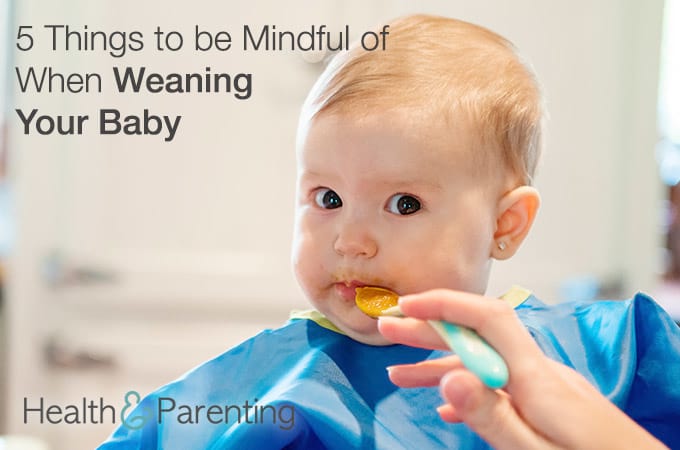Your baby’s first year is filled with all kinds of exciting milestones. The first smile, the first explosive poop, the first time she reaches up with those beautifully chubby arms and gives you a cuddle. One of the milestones many parents look forward to is weaning. Those first few bites of solid food seem just as exciting to you as they are for your baby. All of a sudden, a whole new world of textures, tastes and aromas has opened up to your child.
Like any parent, you’ll want to give your child the best. Whether that means food from your own plate, homemade purees or professionally prepared jars will depend on what’s right for your family. There is no right or wrong way to do things. Here are five things it’s worth being mindful of when it comes to weaning your baby:
- Sugar
Your baby doesn’t need sugar in her diet. Sugar is made up of empty calories that will fill your baby’s tummy without providing any nutritional benefits. It’s also bad news for those pearly whites your baby has been working on recently. If you’re eating out, check with the chef to make sure sugar isn’t being added to your baby’s food. Always check jars of pureed food for their sugar content. Sugar is used a preservative, so your baby might be consuming more sugar than you think. Avoid cordials and fruit juices and instead, stick with water for your baby’s mealtime drink.
- Salt
Salt is another ingredient commonly used as a preservative in foods. It’s also used for flavor, many adults have fallen victim to the salt trap where food doesn’t taste right unless it’s flavored with salt. Your baby does need some salt in her diet, but only 1g a day. It is thought that most babies eat more than this thanks to processed foods such as bread and tinned foods. Too much salt can lead to kidney problems as well as encouraging your child to opt for salty foods in the future which could be bad for her health. Check the labels to see how much food your baby is eating and avoid adding salt to your baby’s food.
- Additives
Additives and e-numbers are added to all sorts of foods. They are used as preservatives and often appear on the label in the form of an e-number, leaving many consumers unaware of what they’re eating. When it comes to your baby’s food, you probably want to be clued up about what’s in it, so keep an eye on those e-numbers. A quick Google search will reveal what each e-number means.
- Allergens
Food intolerances are more common than you might think. Food intolerances can cause skin rashes, stomach cramps and nausea, amongst other symptoms. If you think your baby may have a food intolerance, keep a food diary for a couple of weeks until you can establish a pattern. Note down any symptoms as well as any foods eaten, your doctor will be able to analyse this information to spot potential causes of the intolerance. Animal milks, dairy products, wheat, gluten and eggs are some of the most common causes of food intolerances. Speak to your healthcare provider for advice if you think your baby may be suffering from a food intolerance.
- Quantity
How much should your baby eat? That’s a tricky question to answer and something many parents worry about at night. You may worry that your child is eating too much or too little, but how do you know when she’s getting the right amount? There is no set amount that your child should be eating. The amount she needs will depend on her energy levels, how many calories she consumes through breast or formula milk and whether she is feeling 100%. The best thing to do is let your child determine how much she eats. Offer her a healthy, balanced diet and give her the freedom to choose how much she eats. Some days she will eat more than others, that’s totally normal and nothing to worry about. As long as your baby seems to be thriving, you can rest assured that she’s getting enough food.
Written by Fiona (@Fiona_Peacock), mother, writer and lover of all things baby related.
This information is not intended to replace the advice of a trained medical doctor. Health & Parenting Ltd disclaims any liability for the decisions you make based on this information, which is provided to you on a general information basis only and not as a substitute for personalized medical advice. All contents copyright © Health & Parenting Ltd 2016. All rights reserved.










